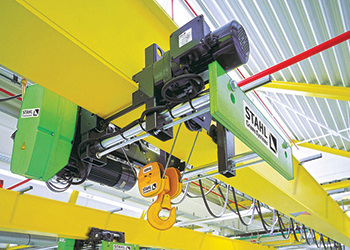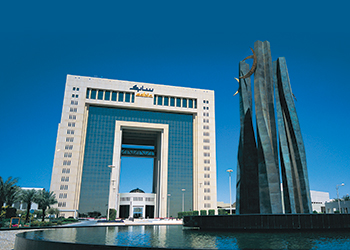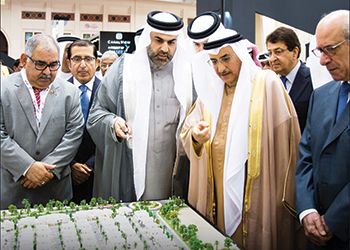
 Sabic and Aramco have synergies at work
Sabic and Aramco have synergies at work
Collaboration between the two could become a powerful driver of the kingdom’s strategic petrochemicals sector that would further Riyadh’s broader economic goals
State-owned Saudi Aramco and Saudi Basic Industries Corp (Sabic) have signed an agreement to study jointly a possible project to build the first oil-to-chemicals plant in the kingdom, in a step that could advance Saudi efforts to integrate and broaden the manufacturing and export scopes of its petroleum, minerals and industrial sectors.
The Heads of Agreement follows Sabic’s own initial study in mid-2014 regarding a fully integrated facility that would process crude directly into range of petrochemical products, including some that are not currently manufactured in Saudi Arabia.
"The company decided to enter into the HOA with Saudi Aramco based on the results of the company’s own preliminary study of crude oil-to-chemicals projects," Sabic told the exchange.
Under its Saudi Arabia Vision 2030 framework for economic reform announced in April, Riyadh is now seeking to broaden its industrial capabilities and product offerings, in part to attract more private-sector secondary manufacturers and conversion industries to the kingdom and in part to provide new export opportunities. Collaboration between Sabic and Aramco could become a powerful driver of the kingdom’s strategic petrochemicals sector in a direction that would further Riyadh’s broader economic goals while capturing cost savings through tighter integration with petroleum refining.
It would also fit well with Saudi Energy, Industry and Minerals Resources Minister Khalid Al-Falih’s long-held ambition to make Aramco instrumental in moving Saudi Arabia up the petroleum value chain, allowing the kingdom to export more of its oil in the form of value-added fuels and petrochemicals products in place of crude.
As the former CEO of Aramco, a company he continues to chair, that was a vision Falih outlined to international audiences as early as 2010, and which his successor as Aramco’s top executive, current president and CEO Amin Nasser, continues to champion.
"Our agreement with Sabic reflects our vision to build on Saudi Arabia’s global leadership in crude oil production and commodities export by substantially increasing the production of oil-based petrochemicals and further optimising value across the entire hydrocarbons chain. This agreement will help spur a new era of industrial diversification, job creation and technology development in Saudi Arabia, particularly through downstream conversion of speciality chemicals by small and medium sized enterprises," he says in a joint statement with Sabic.
Under the strategic agreement, the two companies will conduct a comprehensive joint feasibility study of the proposed chemicals complex, which would use crude directly as feedstock rather than following the current global industry standard.
"Derived from improved refining technology, the crude oil-to-chemicals process will involve innovative configurations with proven conversion technologies. This will create a fully integrated petrochemical complex which maximises chemical yield, transforms and recycles by-products, drives efficiencies of scale and resource optimisation and diversifies the petrochemical feedstock mix in the kingdom," the joint statement says.
The initiative also sets the basis for possibly establishing an innovative joint venture that could set international benchmarks for industrial-scale application of a direct conversion of primary energy and minerals resources to chemicals. A suite of processing technologies has started to emerge worldwide aimed at achieving cost-effective direct conversion of coal and natural gas, as well as crude oil, into chemicals.
However, planning to meet the still futuristic goal of large-scale implementation of such technologies has been vastly complicated and frustrated in recent years by commodity price volatility.
"Sabic and Saudi Aramco can drive advances that will diversify the kingdom’s feedstock mix and make oil a viable petrochemical feedstock," Sabic Vice Chairman and CEO Yousef Al-Benyan says.





























































































